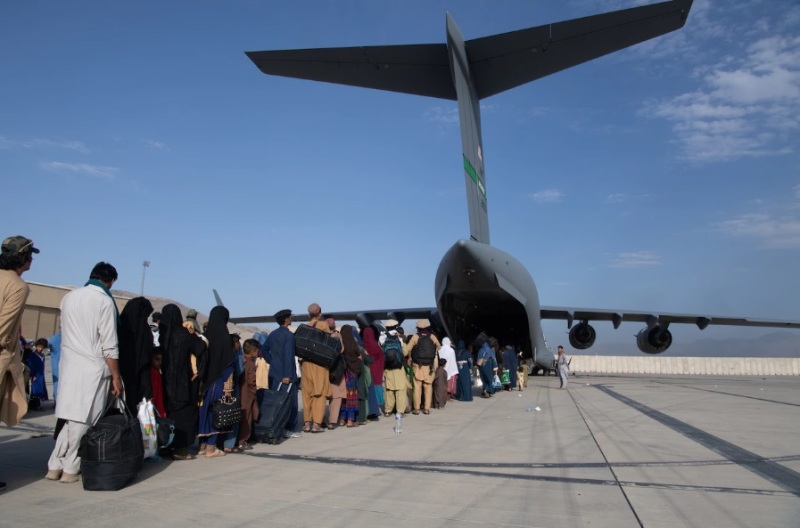
A shocking new report sheds light on how thousands of Afghans migrating to the U.S. did not appear to have worked for American forces at all. The stark realization of how many Afghan refugees escaped Afghanistan while many other American citizens and actual allies remain stranded in the country is indicative of the Biden administration's mishandling of the U.S. troops pullout, whose arbitrary Taliban-set deadline was on August 31.
Mustafa, who is one of the many Afghan allies who escaped Afghanistan on an American military flight out of Kabul, recounted to the Washington Post how during the 2:30 a.m. trip to the U.S., he noticed that many Afghans on the plan "had minimal identification and did not appear to have worked closely with the United States as he had, serving as a translator and analyst."
Mustafa realized they were "just people" who took advantage of the chaotic evacuation to leave Afghanistan, which had fallen under Taliban rule. He mused, "Nobody knows who was the good guy and who was the bad guy getting into the plane. It's a risky thing that I believe happened."
Tens of thousands of Afghans migrating to the U.S. were sent to several military bases across America, including Fort McCoy, Fort Bliss in Texas, Fort Lee in Virginia, and Joint Base McGuire-Dix-Lakehurst in New Jersey.
Of the 50,000 being admitted, about 1,000 have been resettled or relocated off military bases. About one fifth of 10,000 needed additional security screening, with 100 flagged due to "possible ties to the Taliban or terror groups," NBC News reported.
A senior law enforcement official said, "A lot of people were moved very quickly and the intelligence community has been working hard to evaluate whether any of them pose a threat. We are not going to allow people to intentionally be released into the community if they have unresolved derogatory information."
Even Homeland Security Secretary Alejandro Mayorkas was unable to specify how many of the thousands of Afghans migrating to U.S. actually worked with the American forces. Mayorkas, whose agency was tasked with leading relocation, admitted, "I can't really quantify it or measure it against expectations."
Breitbart pointed out that the Biden administration's leaders describe these migrants as "vulnerable" Afghans, appearing to face political or criminal persecution if they are sent back to Afghanistan. But Republican leaders in the U.S. are pushing back for the sake of national security.
Rep. Matthew M. Rosendale of Montana, who is campaigning for the state's governor to refuse Afghan evacuees, argued, "You can't tell me that there are not dangerous people coming into our country."
The Biden administration is now facing additional pressure to ensure that security screening and vetting processes are structured and rigid, because at stake is the U.S.' national security and the immigration debate. Mayorkas ensured that his agency uses "multiple databases and a multilayered approach" to ensure the screening of Afghans migrating to the U.S.
It's worth noting how, in light of the recent report, there are still Americans and Christians who are stuck in Afghanistan waiting to be rescued.



























